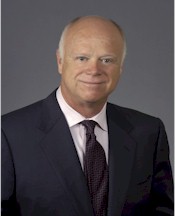|
|
|||||
|
Be Neutral |
|||||
|
Case Watch: For Arbitrators Disclose Repeat Customers to Avoid Accusations of Bias One criticism leveled at arbitration is that parties are willing and able to use particular arbitrators repeatedly. Critics argue that arbitrators are more likely to be biased toward their “repeat customers.” However, the fact that a party has used an arbitrator on several previous occasions cannot by itself support a claim of arbitrator bias. The New York Law Journal recently published a trial court decision where one party claimed arbitrator bias toward a repeat client. United Healthcare v. Azar, Supreme Court, N.Y. County, Sept. 1, 2011. In Azar the parties had adopted the provider rules of the American Arbitration Association (AAA). The Claimant raised the arbitrator-bias challenge prior to the arbitration. AAA determined that there was no basis for a bias challenge under its rules. The parties proceeded with the hearing, and the Claimant raised the bias issue again when the award was filed with the trial court for confirmation.
The trial
court concluded that, “There is simply no evidence of an ongoing
relationship here between the petitioners and the arbitrator that would
warrant disqualification.” Two factors were critical to the court: 1) the
arbitrator had made complete and timely disclosures about prior
arbitrations involving the same party; and 2) AAA, rather than the
parties, had appointed the arbitrator: The failure of an arbitrator to disclose facts which reasonably may support an inference of bias is grounds to vacate the award. … However, in this case, the arbitrator did disclose that he had arbitrated other claims where [Claimants] or [their] attorneys represented the claimants. He disclosed this fact initially and, as he was under a continuous disclosure obligation, he updated his disclosure to include a more recent event as the underlying case progressed. … The parties had full opportunity to object … and the Association – a neutral party with no interest in the outcome of the arbitration – considered respondent’s objection and determined that the arbitrator would be reappointed. The court added that the record showed no evidence that the arbitrator’s conduct supported a claim of bias. Further, it said that the Claimant’s subjective belief on certain unfavorable rulings was insufficient to show arbitrator bias or a conflict of interest. “The simple fact that the arbitrator ultimately ruled against the respondent is not evidence of bias,” the trial court ruled. Lessons for Georgia arbitrators: Disclose, disclose, disclose. Complete disclosure by arbitrators of prior relationships with parties is a critical factor in determining whether parties receive the fair and neutral forum for which they have bargained. Full and fair disclosure by arbitrators of any prior service will likely protect any award from subsequent challenge based on arbitrator bias. But remember, prior relationships between arbitrators and parties alone are not evidence of bias. However, failure to disclose such prior relationships, coupled with a record that indicates rulings in favor of repeat parties, may be sufficient to support arbitrator-bias challenges to awards. In addition, we see that courts are less likely to find arbitrator bias when the claim has already been investigated and rejected by a neutral provider. Where the parties are not operating through a neutral provider, the arbitrator should consider whether some other neutral review of bias claims would be advisable before proceeding with the hearing on the merits.
|
|||||

